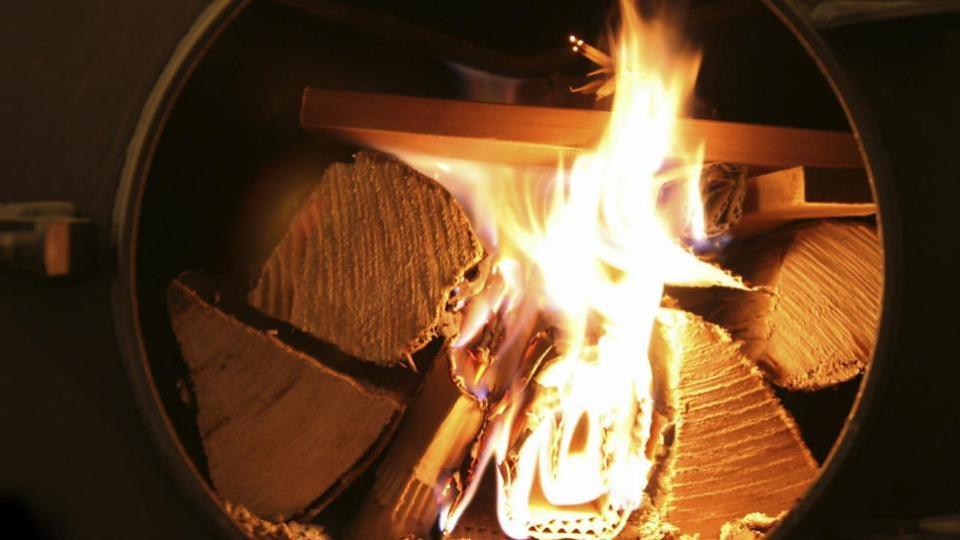Crofters say wood-burning stove ban 'not rural-proofed' by ministers

A Scottish Government ban on wood-burning stoves in new build properties did not take the realities of rural life into consideration, a crofters’ leader has said.
Donna Smith, Chief Executive at Scottish Crofting Federation, said that the decision to block wood-burning stoves in homes built after April this year was not “rural-proofed” before it was made.
Fossil and bio-fuel heating in newbuild properties has been banned under new building standards legislation which came into force on April 1st.
Exemptions do exist for these types of heat generators to be used as back-ups, particularly in areas prone to power cuts.
But these will be made on a case-by-case basis, leaving prospective house-builders at the mercy of local councils’ planning departments.
Ms Smith said that more clarity was needed on what could constitute an exemption, and more discussion should be held on the policy’s impact on rural communities.

Speaking to BBC Scotland, the crofter said: “We’d all love to know what the definition of ‘emergency heating is and how that’s defined.
“In the regulations which have come out it says that’s down to the local authority to decide whether there is enough risk of power cut to allow for emergency back-up to be installed.
“We urgently need clarification on what that actually means, because we’re being left to the mercy of the planners and the councils on this front may not yield consistent results for our members and crofters across the country.”
READ MORE: Explained - Has Scotland banned wood-burning stoves?
She added: “What we can’t forget with people living in these rural areas is that a lot of them face high electricity costs, much higher than in the cities. Much higher risk of power cuts - you hear of people going days without heat or power – and actually having a wood-burning stove not only provides heat but for some provides a method for cooking and everything else.
“We’re desperately needing more housing in rural areas, and even building a house in a rural area is more expensive than building in the cities. I understand why this decision makes sense, in a city, but there’s no ‘rural-proofing’ we can see at all in this policy, and that’s what we’d like to look at.
“Our government talks about helping rural communities thrive, but seems to keep making decisions that go against that. A good sit down and a talk about how this could impact people in rural areas is really important.”

Some stoves may be installed if exceptions are made (Image: PA)
The policy has been imposed to help further the drive to net Zero emissions across Scotland, and was backed by all parties at Holyrood.
The ban does not apply to existing wood-burning stoves, new-builds granted permission before April, or the installation of a new boiler in an existing property.
READ MORE: Scottish ban on wood burning stoves in new builds takes effect
Former Green MSP Andy Wightman said that more consideration needed to be taken on the impact on the policy in rural areas.
He said: “We do need measures to reach net zero and we do need to increase standards of insulation technology on new builds in order to do so.
“The problem I have with is not so long ago wood was regarded as a renewable, low-carbon source of heat and my view is that it still has a place, albeit a limited place, in parts of rural Scotland where it is a very effective source of heat.
“To have an outright ban on all direct emission heating systems seems to be disproportionate in relationship to the benefits that would bring.”
He added “And it’s not just wood, it’s not just the fuel, or the boiler or the stove, it is the wider ecology and the forest economy in rural areas.”
A Scottish Government spokesperson said: “There is no ban on wood burning stoves.
“The New Build Heat Standard applies only to new-buildings applying for a building warrant from 1 April 2024. Under the Standard wood burning stoves can still be installed in new homes to provide emergency heating where required. This recognises the unique needs of Scotland’s rural communities.
“Proposals for the New Build Heat Standard were subject to full consultation in 2021 and again in 2022, and both consultations showed strong support.
“Heating our homes and buildings represents about a fifth of Scotland’s carbon emissions so tackling the climate emergency requires us to address these emissions. That is why the Scottish Government has recently finished consulting on plans for introducing clean heating systems in existing homes and buildings and is currently considering responses.
“This consultation recognised that bioenergy systems, like wood burning stoves, are a renewable, and in many cases, a net zero form of heating which may be the best solution for some homes – especially in rural Scotland.
“That is why we asked for views on how to ensure a flexible approach which still enables the use of bioenergy heating systems as we move towards net zero.”

 Yahoo News
Yahoo News 
